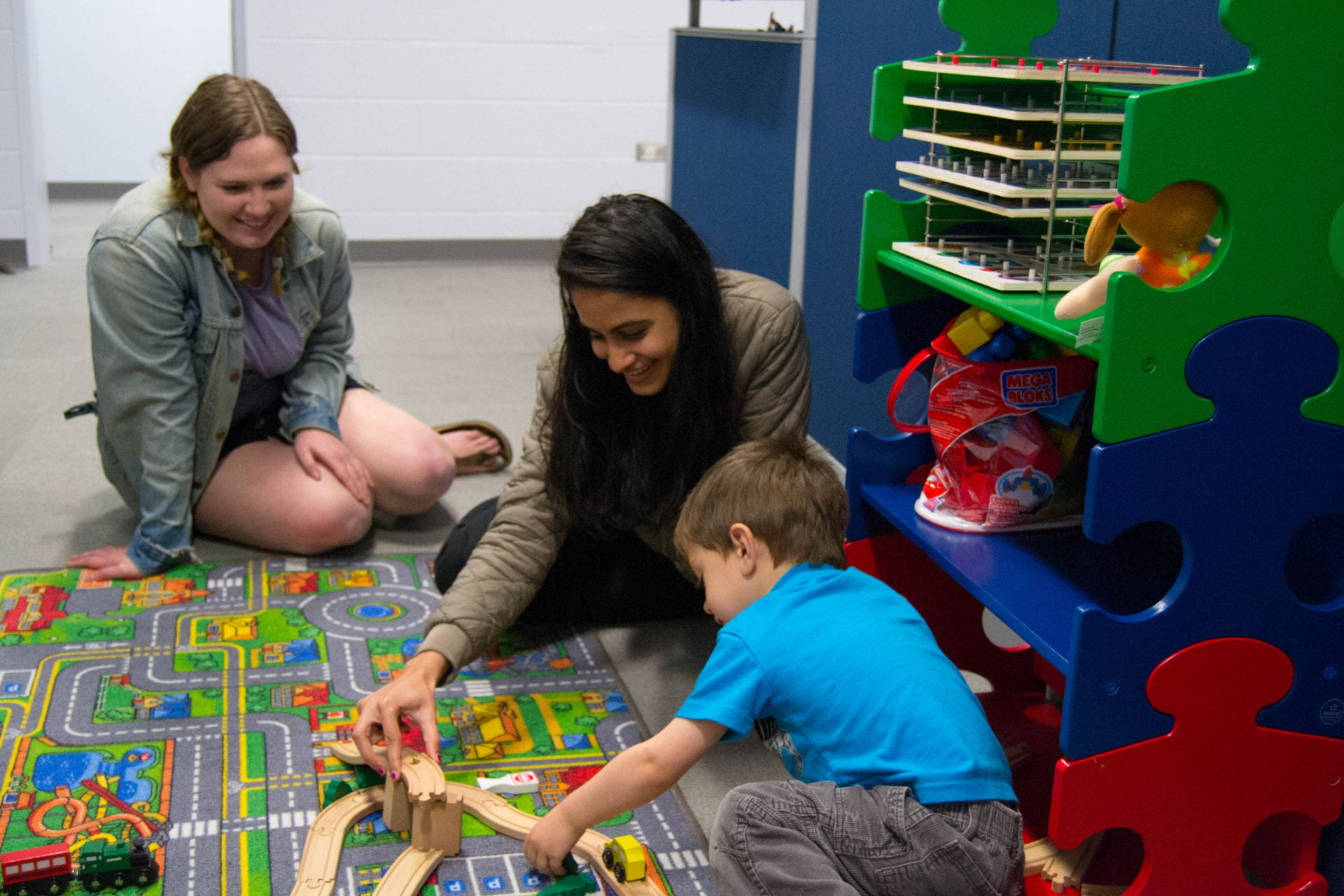Research
Our research uses methods from cognitive development to investigate the origins of human social cognition. We are interested in people’s reasoning about other individuals – their social identities, actions, minds, decisions, and relationships – and how early thinking in childhood lays the foundation for adult reasoning.Our Studies
Many studies in the lab have focused on children’s perception of others’ language and accent as a conduit for social meaning. Our current work maintains this focus, and also explores how developmental science can inform our understanding of the social judgments and decisions that people make in a variety of contexts, ranging from people’s choices of foods to their moral and political decisions.

Current projects are centered on four general areas.
LANGUAGE AND SOCIAL COGNITION
Beyond the literal communication it conveys, language provides social meaning. Disciplines across the social and behavioral sciences have studied language usage as a marker of social and cultural identity, and described the prevalence of linguistic conflict as a correlate of social conflict. Yet, with a few notable exceptions, studies of language as a social category are surprisingly absent from research by experimental psychologists who investigate social groups and intergroup relations. In response to this gap, our research explores the developmental origins of people’s thinking about language (and especially accent) as a social category. We find that language provides a critical – and potentially primary – way in which people divide their social worlds. In ongoing work, we are interested in the development of accent attitudes and national identities, and how thinking about language relates to thinking about disgust.
For representative publications, see:
INTUITIVE JURISPRUDENCE
How do notions of justice develop? We are interested in studying children’s early intuitions to shed light on classic problems approached by moral and legal philosophers. For instance, in a recent project, we investigated children’s intuitions about the nature of punishment, finding that children understand punishment in a way that is consistent with the expressive theory of law. We also find evidence that understanding the value of the social contract develops throughout childhood. In ongoing work, we are interested in using developmental methods to illuminate people’s earliest “legal” intuitions, as well as to understand how those intuitions are shaped by cultural context.
For a representative publications, see:
BILINGUALISM
Children raised in multilingual environments have different social environments from their monolingual peers – they have to track other people’s linguistic perspectives, thinking about who speaks what to whom. These differences in socio-linguistic environments can lead to differences in social cognition. For instance, we find that children exposed to more than one language spontaneously interpret someone else’s utterance by taking into account her perspective, whereas monolingual children are more egocentric. In ongoing projects, we are interested in the consequences of multilingual environments for children’s communication, social understanding and decision-making. Through the Chicago Center for Practical Wisdom, this research is funded by the Templeton Foundation.
For representative publications, see:
FOOD AND CULTURE
Selecting appropriate foods is a complex and evolutionarily ancient problem. Yet, babies are notoriously inept food consumers (putting disgusting things in their mouths), and past studies aiming to teach children about nutrition have yielded limited results. We propose that reframing food selection as a social problem rather than a biological problem may shed light on the circumstances by which healthy (or unhealthy) eating practices develop. Food choice is social and cultural, and the foods people eat signal something about who they are. We find that beginning in infancy, people’s reasoning about food choice is tied to their thinking about social groups. In ongoing research, we are interested in how contextual information influences children’s food choices and subjective experience of taste. This research is funded by the National Institutes of Health.
For representative publications, see:
